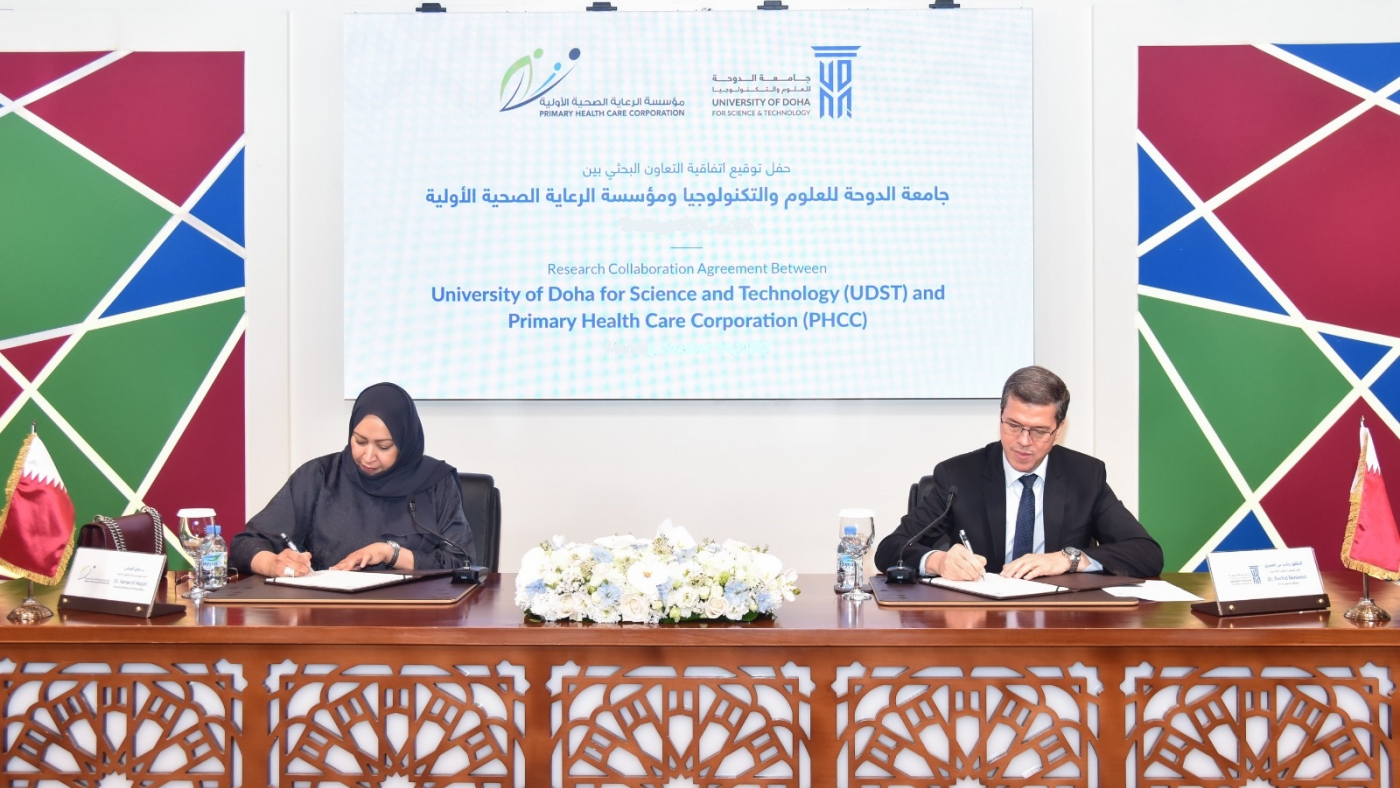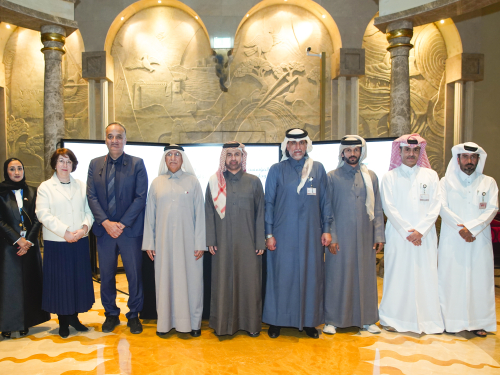
University of Doha for Science and Technology (UDST) signed an open-ended Research Collaboration Agreement with Qatar’s Primary Healthcare Corporation (PHCC). The partnership enables both institutions to engage in collaborative research of mutual interest supporting various educational activities under the UDST’s Master of Science in Diabetes Care and Patient Education program (M.A.Sc. DCPE). The agreement was signed by Dr. Rachid Benlamri, Vice President, Academic Affairs, UDST and Dr. Hanan Al-Mujalli, Executive Director of the Clinical Affairs Department, PHCC.
Under the agreement, investigators from the University’s College of Health Sciences and PHCC’s Department of Clinical Research will have joint responsibility for the scientific and technical conduct of the research, to be carried out under the direction and supervision of the same.
Dr. Salem Al-Naemi, President of UDST said: “As Qatar’s first applied sciences university, UDST’s College of Health Sciences has built a portfolio of leading-edge programs to educate and empower the country’s future healthcare professionals. Many of these programs are a direct response to Qatar’s specific, crucial healthcare needs such as the M.A.Sc. DCPE program that was created to develop competent individuals with advanced skills in diabetes care. The collaboration agreement with PHCC will bolster both institutions’ research capabilities, provide greater academic opportunities in healthcare, helping to close the knowledge gap in this sector as identified by the National Diabetes Strategy 2016-2022.” Dr. Salem Al-Naemi added that: “UDST’s collaboration agreement with PHCC is a testament to the University’s alignment of values and its commitment to the human development pillar of Qatar’s National Vision 2030, an important part of which is to develop a physically healthier society. We are proud to partner with such a prestigious leader in healthcare.”
Dr. Hanan Al Mujalli, Executive Director of the Clinical Affairs Directorate, PHCC said ‘PHCC’s
corporate strategy aims to place primary health care services as the foundation of the health system in the state of Qatar. It is committed to delivering well-coordinated and high-quality care that will lead to healthy a population. This new partnership will strengthen PHCC’s role by bolstering new research opportunities. It will also equip graduates with the necessary skills to fulfill roles in primary care settings.
The prevalence of type 2 diabetes in Qatar is 17% of the adult population. The incidence of diabetes in Qatar is witnessing a significant increase compared to regional and international incidence rate.
It is one of the nation’s leading causes of morbidity and disability. Enabling better research into diabetes care can lead to more effective treatment, better outcomes for the patient population and can eventually lower the rate of disease, thus reducing the associated physical and economic strain on society.
Dr. Manal Musallam, Chair, MAScDCPE Program Advisory Committee, Adjunct Professor at the College of Health Sciences at UDST and Director of Patient Education, HMC said:
“I am very pleased with the establishment of this research collaboration as an output of the Master of Applied Science in Diabetes Care and Patient Education Program Advisory Committee discussions and we look forward to creating more opportunities for research partnerships, in line with the research pillar of the National Diabetes Strategy in the State of Qatar.”



